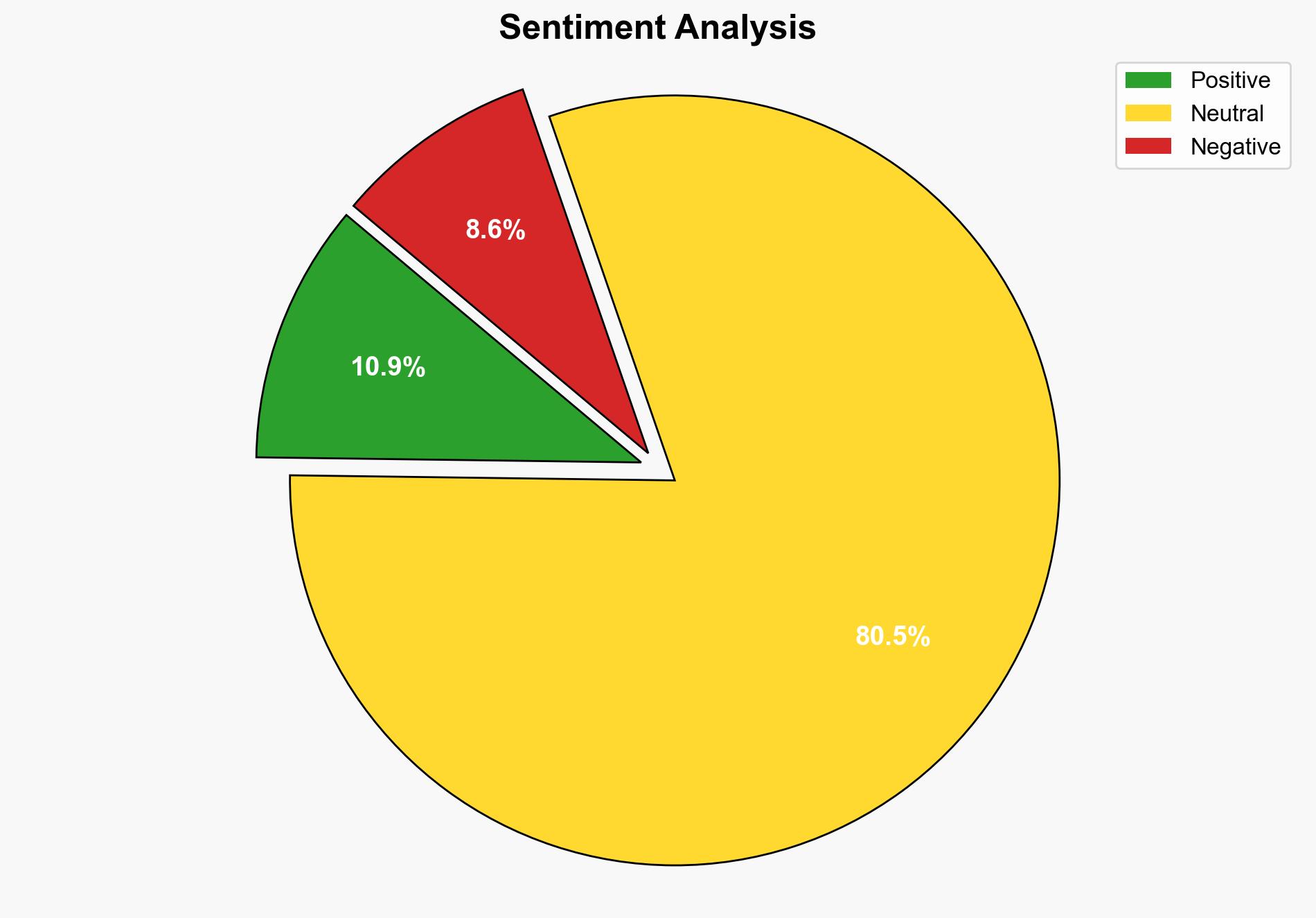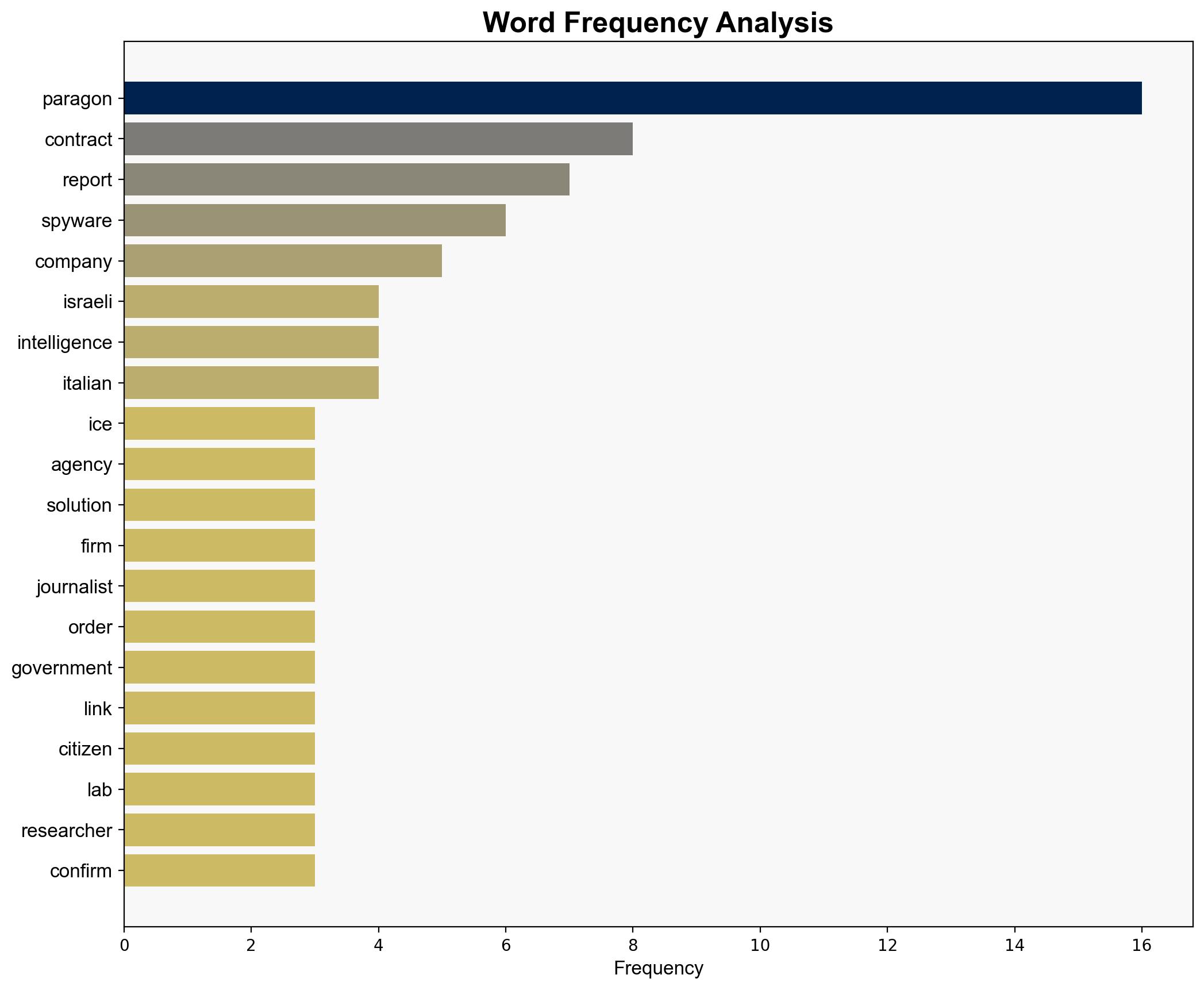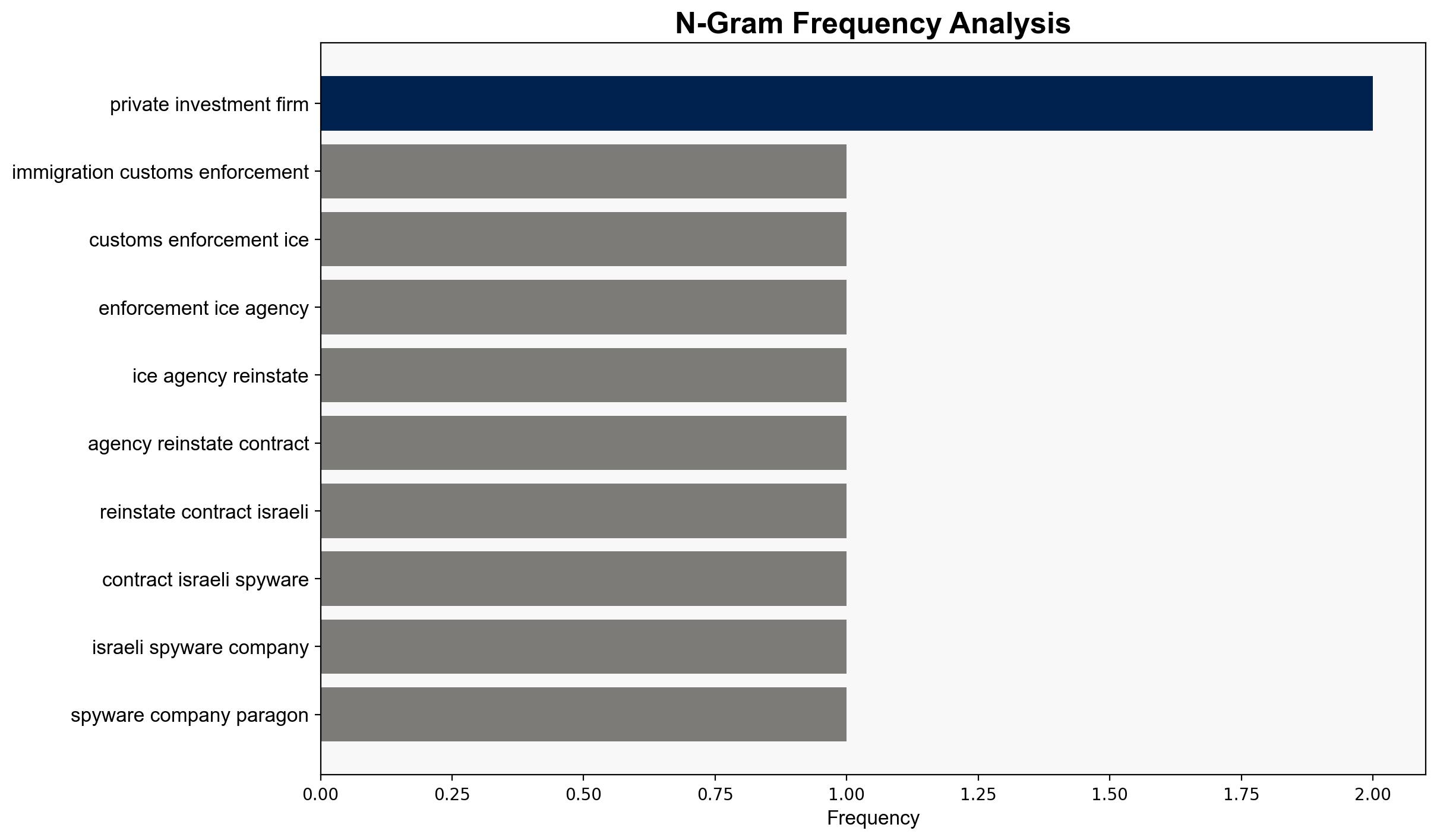ICE Reinstates Contract with Spyware Vendor Paragon – Infosecurity Magazine
Published on: 2025-09-02
Intelligence Report: ICE Reinstates Contract with Spyware Vendor Paragon – Infosecurity Magazine
1. BLUF (Bottom Line Up Front)
The reinstatement of ICE’s contract with Paragon, an Israeli spyware vendor, raises significant concerns regarding compliance with U.S. executive orders and potential national security risks. The most supported hypothesis suggests that the reinstatement was driven by strategic needs outweighing regulatory concerns. Confidence in this assessment is moderate due to limited transparency in decision-making processes. It is recommended to conduct a thorough review of the contract’s alignment with U.S. cybersecurity policies and international partnerships.
2. Competing Hypotheses
Hypothesis 1: The reinstatement of the contract with Paragon was primarily driven by ICE’s operational needs, which were deemed critical enough to override concerns about compliance with the executive order limiting spyware procurement.
Hypothesis 2: The reinstatement was influenced by external pressures, possibly from private investment interests or diplomatic considerations, leading to a prioritization of strategic alliances over regulatory adherence.
Using ACH 2.0, Hypothesis 1 is better supported by the urgency of ICE’s operational requirements and the historical precedence of security needs taking precedence over regulatory constraints. Hypothesis 2 lacks direct evidence but remains plausible due to the involvement of private investment firms and geopolitical implications.
3. Key Assumptions and Red Flags
– **Assumptions:** It is assumed that ICE’s operational needs are critical and that the executive order’s restrictions are flexible under certain conditions.
– **Red Flags:** The rapid suspension and reinstatement of the contract suggest potential inconsistencies in policy enforcement. The involvement of private investment firms raises questions about potential conflicts of interest.
– **Blind Spots:** Limited visibility into the decision-making process and the specific operational needs of ICE that necessitated the use of Paragon’s services.
4. Implications and Strategic Risks
The reinstatement could set a precedent for circumventing executive orders under the guise of national security, potentially weakening regulatory frameworks. It may also strain international relations, particularly with allies concerned about spyware misuse. The decision could escalate into broader scrutiny of U.S. procurement practices and impact trust in U.S. cybersecurity commitments.
5. Recommendations and Outlook
- Conduct a comprehensive audit of the contract to ensure compliance with U.S. cybersecurity policies and executive orders.
- Engage with international partners to address concerns and reinforce commitments to ethical cybersecurity practices.
- Scenario Projections:
- Best Case: The contract is found compliant, strengthening ICE’s operational capabilities without diplomatic fallout.
- Worst Case: Non-compliance leads to legal challenges and international diplomatic tensions.
- Most Likely: Minor adjustments are made to align with policies, with limited international repercussions.
6. Key Individuals and Entities
– Ehud Schneorson
– Ehud Barak
– Jack Poulson
– Bill Marczak
– John Scott Railton
– Luca Casarini
– Giuseppe “Beppe” Caccia
7. Thematic Tags
national security threats, cybersecurity, counter-terrorism, regional focus




